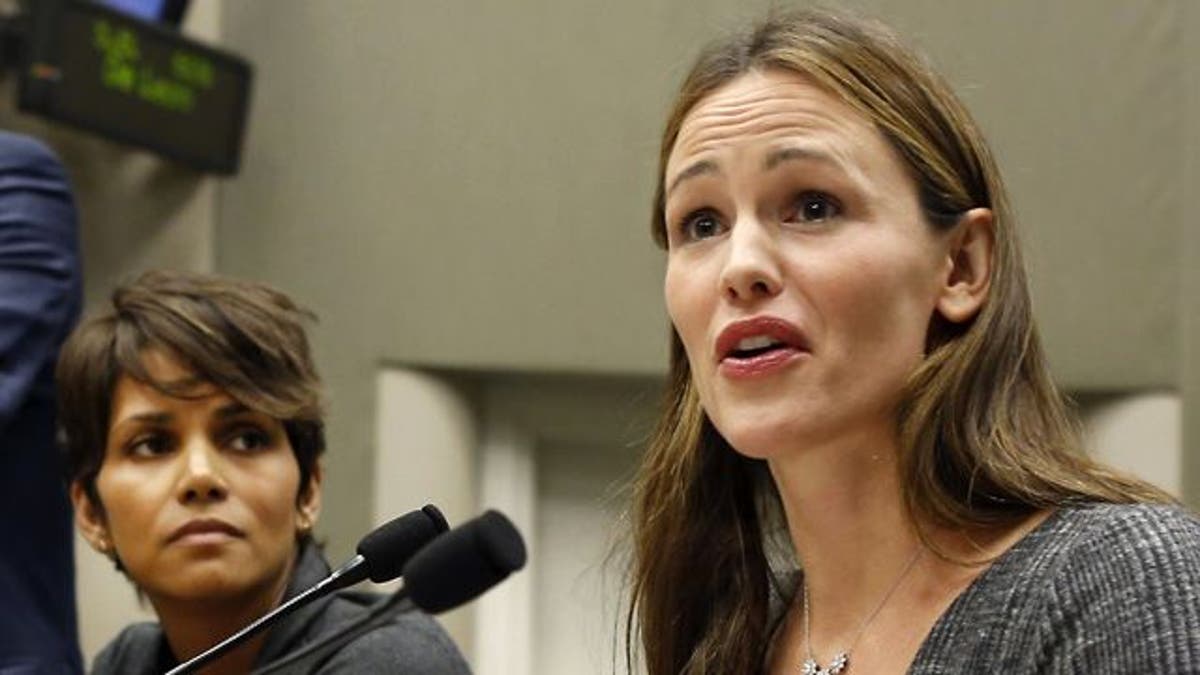
Actresses Halle Berry (left) and Jennifer Garner testify in support of a bill increasing penalties for paparazzi who harass the children of public figures earlier this year in Sacramento, Calif. (AP Photo)
SACRAMENTO, Calif. – Paparazzi and others who harass the children of public figures will face tougher penalties under legislation that California Gov. Jerry Brown signed Tuesday.
The bill from state Sen. Kevin de Leon, D-Los Angeles, will boost penalties for actions that include taking photos and video of a child without parental consent and in a harassing manner.
Celebrities such as actresses Halle Berry and Jennifer Garner urged lawmakers to support SB606. Berry testified before several legislative committees that her daughter has been intimidated by photographers who follow them daily. She said the photographers often shout while they snap pictures.
"On behalf of my children, it is my hope that this is the beginning of the end for those overly aggressive paparazzi whose outrageous conduct has caused so much trauma and emotional distress," Berry said in a statement released by her publicist.
The measure also will help protect children of police officers and judges, and other kids who might be susceptible to harassment or unwanted attention due to their parents' occupations, de Leon said.
Berry, who won an Academy Award for her role in "Monster's Ball," said she plans to work with other professionals whose children are affected by the statute to ensure local law enforcement officials will vigorously enforce the new provisions.
Under the legislation, which takes effect in January, violators could face up to a year in county jail and a fine of up to $10,000. Fines would increase for subsequent convictions.
The bill also allows for parents to bring a civil action against violators to seek damages and attorneys' fees.
"Kids shouldn't be tabloid fodder nor the target of ongoing harassment," de León said. He added the new law "will give children, no matter who their parents are, protection from harassers who go to extremes to turn a buck."
Media organizations, including the California Newspaper Publishers Association, opposed the legislation, saying it was overly broad and could restrict legitimate newsgathering activities.
De Leon's office says the bill does not infringe on First Amendment rights because it targets the photographer's conduct, not the act of taking a photograph.






